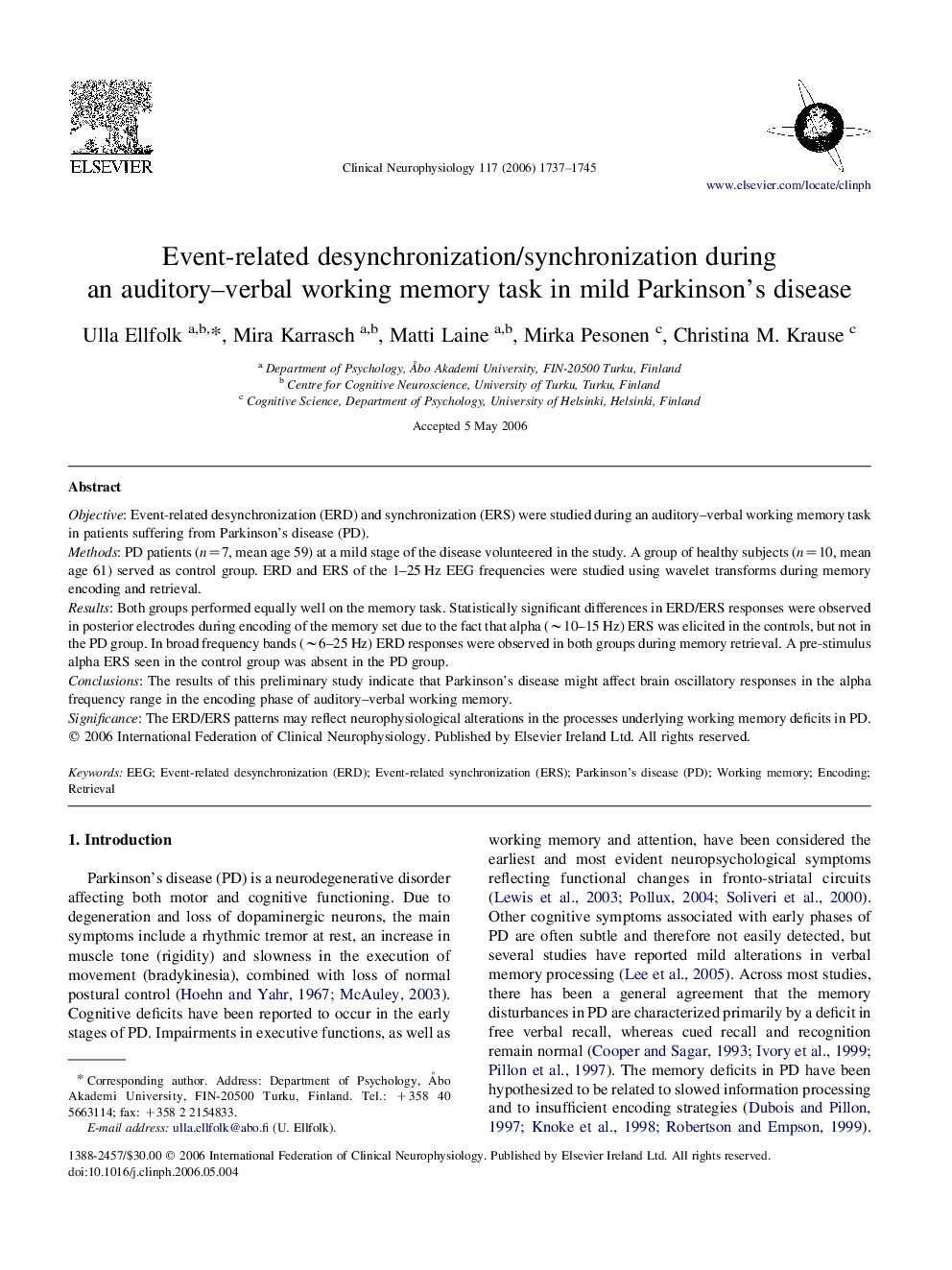| Article ID | Journal | Published Year | Pages | File Type |
|---|---|---|---|---|
| 3048666 | Clinical Neurophysiology | 2006 | 9 Pages |
ObjectiveEvent-related desynchronization (ERD) and synchronization (ERS) were studied during an auditory–verbal working memory task in patients suffering from Parkinson's disease (PD).MethodsPD patients (n=7, mean age 59) at a mild stage of the disease volunteered in the study. A group of healthy subjects (n=10, mean age 61) served as control group. ERD and ERS of the 1–25 Hz EEG frequencies were studied using wavelet transforms during memory encoding and retrieval.ResultsBoth groups performed equally well on the memory task. Statistically significant differences in ERD/ERS responses were observed in posterior electrodes during encoding of the memory set due to the fact that alpha (∼10–15 Hz) ERS was elicited in the controls, but not in the PD group. In broad frequency bands (∼6–25 Hz) ERD responses were observed in both groups during memory retrieval. A pre-stimulus alpha ERS seen in the control group was absent in the PD group.ConclusionsThe results of this preliminary study indicate that Parkinson's disease might affect brain oscillatory responses in the alpha frequency range in the encoding phase of auditory–verbal working memory.SignificanceThe ERD/ERS patterns may reflect neurophysiological alterations in the processes underlying working memory deficits in PD.
